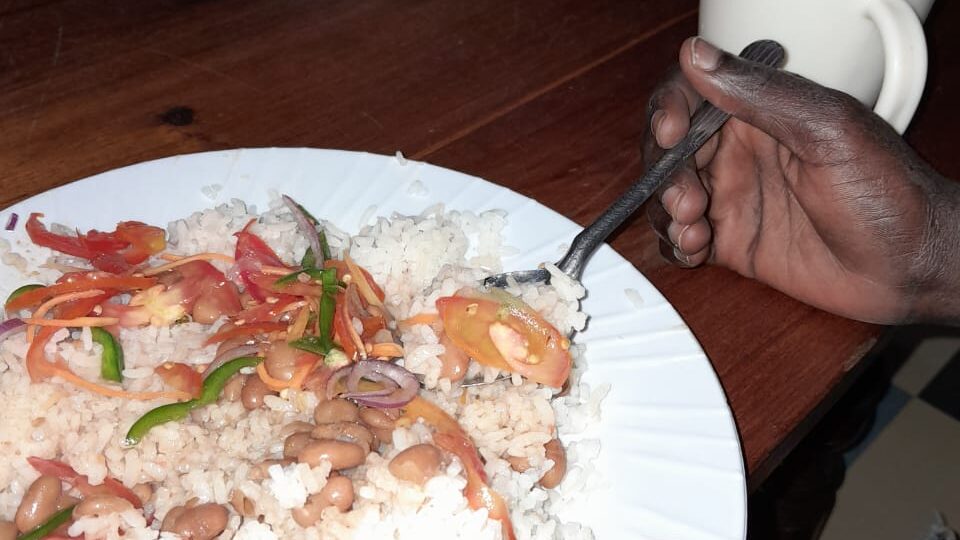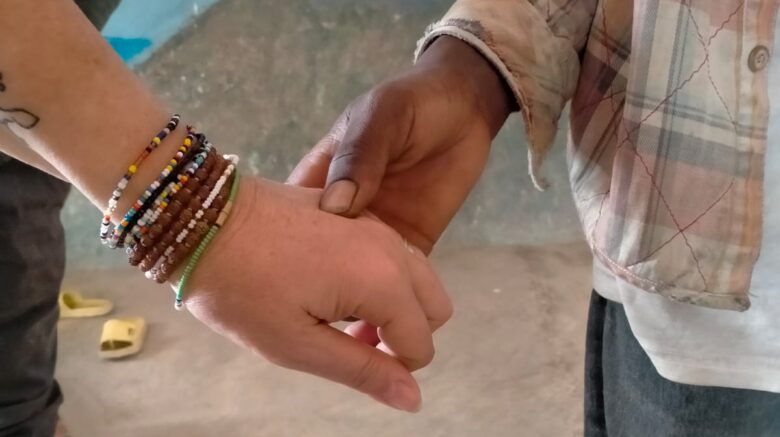R. fulls up his plate with some rice, beans and vegetables. He takes two spoons and put them into the food, then he comes closer to me and says “Mama njoo, tule pamoja, nimeshaweka vijiko viwili” (Mom come, let’s eat together, I have two spoons). I hear and walk towards the sofa in the hall. On the table in front of us he had already placed to glasses filled up with water, one for me and one for him.
It’s not the first time I share a dish, it is quite common in Tanzania and I have been living here for long enough to have witnessed this scene several times. It happens also in the streets: I have been offered food many times by dusty sweaty hands of those who spend his life there, hour by hour. I don’t think it is a matter of kindeness only, nor even respect, it is rather a way to understand whether they can trust me or not, by accepting their food I’m telling them I accept them as they are, even the fact they will not be able to leave the street, maybe. For them, this is the gratest act of love: I can not take their salvation for granted but I will be there for them.
R. is a 12-years-old kid, he lives in the streets and he often comes to the drop-in center at KISEDET: in the morning he arrives at the center, he drinks “uji”, he washes himself and his cloths, he rests and after lunch he goes back to the street with other young boys. R. is also positive for HIV, one more reason to escape the street as soon as possible and to change his life.
We had lunch together eating from the same plate. I accept him and he trusts me, KISEDET welcomes him and because of that he comes back the next day. Whenever he will feel like going back to school, we would bring him to school and if, one day, his disease will flourish, we could notice and provide him with medical assistance and eventually medicines.

Working with children and youth living or working in the streets is not an easy task, there is no one-fit-all solution, time is needed to create a bond of trust between staff and beneficiaries but time is also running fast while in the streets because risky behaviours become the normality. Thus, it is important to always leave the door open to those who – soon or later – will consciously choose to change their lives.
The street never raised a child but it has seen many children growing up. The street makes them insecure, full of fears, but also excessively incautious facing danger. Living in the streets generates anger and violent behaviour, in actions and words. To offer them a safe place where to feel welcomed and accepted is so important.
Some of the boys who access the drop-in center are almost adults, we have known each other since very long time and they haven’t had enough of the opportunities offered by KISEDET to get off the street. But they will never be denied shelter. Others are younger and every single day we have the chance to show them another way of living, to tell them they can still reverse course.
A child who does not abandon the street will be an adolescent and later an adult having little chance to change his path, most probably he will also give birth to a second generation of children living or working in the streets.
Please donate to fund the drop-in center, to continue providing water, soap, towels and mats for resting; to guarantee hot meals to these children and youth who rely on us.

